Apples and Pears
It is late on Sunday night and while I write, chestnuts which I gathered just outside my window are roasting in the oven. This time of year would be far too packed, even if I could take the season off just to forage and store up good foods. I am simultaneously packing to travel to Rome for a week on Monday as well as packing most of my winter stuff for a month in Northern Europe with Theresa Emmerich. Plus I had a guest staying, and now the chestnuts are calling, and I shall likely miss the acorn harvest, and what about the first ripe rosehips, the final fallen pears next door, and the last of the nettle stalks for future cordage?
And then I remember not to turn this abundant ‘lilies of the fields’ moment in the year into an anxious scrabble. One day perhaps I will be lucky enough to spend an autumn laying up stores in all the many ways I have learned over the last two decades (I did not grow up knowing about wild foods, beyond blackberries). But for now, even one night writing with the smell of roasting chestnuts in my nostrils makes me happy. Especially after a great week of shared pear crumbles from my neighbour’s trees.
Percy1 lives in the house across the alley and always lets all his pears and apples fall to the ground to be eaten by foxes2, rooks and slugs. There are plenty for me too and my freezer is full of bags of them, ready chopped, plus the fridge drawer is packed with ones I hope to deal with between the trips to Rome and Sweden... The idea of wasting them feels wrong. Percy and I struck up a neighbourly friendship when his wife was in hospital two years ago and he said I could pick up the fruit whenever I wanted, as no one else had asked in their 50 years of living here. Then there’s Susan opposite, whose Bramley apple tree is a godsend, dropping huge green shiny half-a-pound-each cookers all through the autumn, alongside the eating apples round by the back gate. She also doesn’t eat them, she said she doesn’t know why not. This week she said they were, ‘Too much.’ I chatted with her over the garden gate as she trimmed her hedges and planned another car parking space where a dead cherry tree stands now. (‘It just died’, she said.) As she handed me another armful from amongst the chaos of branches in the corner, she told me about her three kids, almost grown up, and how none of her other neighbours talk to her even though she’s been here 25 years. I say, ‘Ah, this part of Bournemouth can occasionally be a bit snooty…’
It is now many years since I have had my own garden with apple trees. When my grandmother died, I spent the £200 she left me on locally grown fruit trees suitable for the Aberdeenshire climate. When I passed the house years after leaving it, I saw that every tree had been grubbed-up and an immaculate lawn had been laid instead. Where once WWOOFers and housemates had planted many layers of food plants, from low growing herbs to big bushes of currants, now the green monoculture of empire was unimpeded from neat flower border on the left to retaining fence on the right. The unruliness of life was clearly not to the new owners’ taste; I guess they bought in all their food. I have had small allotments since those days in which to grow a little food, but without someone willing to share the work it became too difficult, and so opportunistic foraging, whether urban or rural, has reclaimed the top spot in my subsistence methodology, for now.
This week I want to gather a few things that stem from ordinary moments of neighbourliness, abundance, or lack, as well as the deeper storing, mending and testing that are appropriate for me in these times. I was due to post on this topic last week, but a little late is fine. Plus, I feel that the basket of foraged thoughts this week will be a little less sorted and tidied than usual, as reflects a woman with two cases at the door, full of coloured stones, oak galls and feathers.
Testing our connections
In my teacher’s Tai Chi school, and in mine for the 18 years that I taught regular classes, we’d push hands for up to an hour at the start of each class. Week after week, year after year, we’d change partners three or four times a session and feel the changes in ourselves and our classmates. There would be weeks when all I could feel was my own brittleness or distraction mirrored back at me, or conversely, when it seemed I could feel the whole emotional week of my friend present in the quality of their touch. Most importantly, by training with regular classmates, we began to get a trustworthy feeling for where both we and they were at with their practice: how well connected, how soft, how reactive, how grounded, and so on. With some great long-term classmates3 there is a sense you can try almost anything out; a bit more speed, a new technique, a different ‘feel’ completely, eyes closed, or turning up the intensity, and they are up for it, with reliable feedback to let you know how it felt to them. This feedback is golden, it is reliable, honest and based on reality. It can be trusted. There is no bullshitting. It gives me the same experimental joy as is often found in the lab, the studio, the kitchen or the workshop. I miss it right now, but I get back when I can, and train solo daily or with my flatmate when he’s here. This long term calibration-by-relationship is surely one of life’s great methods of enquiry. We can seek these kinds of real feedback relationships in our everyday life too, via trust and conversation and if we find such a crucible, we are lucky.
How is this relevant to daily life, while wars rage in many places and everyone is shouting?
There are some things I am currently attending to, much more thoroughly than normal and I am giving them the provisional label of ‘mending my nets’. These nets are multi-purpose. Some seem destined to be fishing nets, others are networks of relationships, both with places (the warp) and individuals (the weft), when the entire net can be seen as everything that holds me. Some of the nets are the string bags I’ll need to gather things, foraging for food, practices or ideas that will store and mature well for when they are needed. Some of the nets will need to be really strong, as we may be required to hold them wide and taut to catch those we love who may be falling, or perhaps jumping for their lives.
Reweaving the nets
The things I will mention might be what you do already. I am listing them for a sense of completeness rather than suggesting a concerted mission. Mostly, I am just mending my nets, then also testing them. This involves being in more regular contact with all those dear to me, in ensuring we are communicating well, even about difficult things, by taking care of my side of it as much as I can. By organising small things, and keeping to them or making them happen; the kinds of things that were normal before lockdowns, but seem to have slipped out of the regular practice of many of us: visits, calls, trips, meet ups. Having everyone’s address written down in my actual (ancient) Filofax. Not relying on electronics. Sending cards.
Twice, when I can see that a relationship is not mendable, I have made the sad decision to leave it broken and not meddle, nor waste my time fiddling with something beyond repair, and instead turn back to where I am needed. This is never easy, nor taken lightly.
I have been mending physical things that are broken and gathering spares, especially with my fishing kit and outdoor clothes. Frequently mending things for others, particularly clothes4, making food and giving it away. Keeping my knives sharp, revising my wild foods knowledge… So far, so ‘ordinary life anywhere 120 years ago’, certainly.
As someone with no interest in ‘prepping’5 for the same reasons outlined in this excellent essay I mentioned back when I started my Substack, it does not mean I am not interested in preparedness, and that is not an individual, nor even a household affair, at least for those of us who are not millionaires. Instead, it is a pleasure to offer the skills we have to others and to be part of the gift economy of our neighbourhood, family or friends group. It is also wise behaviour to be known as someone who can get a certain thing done, or fixed. In my country, which famously industrialised first, most urban people have been far from relationship with land, the seasons, or traditional bonds of reciprocity and responsibility within communities for the longest time, coming up for three centuries - and it shows. Reading Lean Logic, and seeing the vast internal and external skills gap between the practices we will shortly be needing, and where we are currently culturally situated, is sobering.
I am just one woman in a flat in a seaside town, and I am no expert on anything, really. Although I am a keen generalist and an enthusiastic learner, but there is only so much I can attend to without wearing myself out. Knowing this brings me back to the need for real-life community and focuses my attention on playing my part in the webs of relation of which I am already a part, rather than seeking out something special and new. If I am honest, I would say it is too late for that. So I decided to start where I am.
Deal with things when they are small
These words are a common refrain in both the Taoist and T’ai Chi Classics. Whether we are attending to the beginnings of a punch, so that we can connect, yield and not be hit, or whether we are preventing something breaking down by staying on top of repairs, dealing with things when they are small requires an open expanded awareness that is not encouraged by the dominant lifestyles within Modernity. Urban, and much of rural, life worldwide now requires frenetically keeping tabs on the ephemera of existence, rather than spending time immersed in physical reality and real relationships with those around us. We shift hypervigilant focus to the next now this!, now this! and wonder why we are exhausted. Wars happen because people - ‘leaders’ - will not do the mundane, careful, compromising, unglamourous work of dealing with things before they are so big that blame can be ascribed. To have dealt with things when they were small would mean to have already done much behind the scenes work many years ago, much of which must be kept sub rosa. The same goes for climate inaction.
The kind of ‘foraging mind’ that I often talk about, where awareness spreads broadly over the whole field of vision, seeing a berry bush here, a nut tree there, a sapling that in two years will give fruit over there, is also, unsurprisingly, a wonderful state of mind in which to hang out. This ‘gathering’ mind allows so much in, information, impressions, physical feelings, rightness, out-of-places-ness, intuitions, all of which lead to favourable real-world foraging outcomes both in the moment and in future forays. It is hard to put into words, but this way of being, which accords with Iain McGilchrist’s description of the qualities of Right Hemisphere awareness, isn’t a sorting, naming, controlling way, but an active kind of receptivity that seems to get things done with little effort, and often with much incidental joy.
I am trying to pair this mostly non-doing way-in-which with periods of focussed doing, for instance, while I write these words, or make sure the plumber comes to mend the kitchen sink mixer tap, and that I have a bag of pears ready for him when he does. It appears the ‘gathering mind’ is the one that notices what needs to be done in good time, it sees the buds that will be cherry blossom, so that I will know from which trees to collect gum for paints in each new place. But it is the ‘counting mind’, if you like, which makes the lists, packs the knife, places the calls and orders the parts. There need be no war between these ways of being, one is not ‘better’, when they work in concert correctly, with the open expanded mind as director, or ‘master’.
No chart, but an inner compass
My current conundrum, which I happily pass on to you to mull over with me is this: when all around us is beginning to break down, and has already broken down completely for so many, and everything feels as though it is accelerating into grimness and antipathy, how can we keep faith with the way we truly know we must live?
I am compelled to keep friendship, love and connection to specific places, people and practices at the forefront of daily life, no matter what is occurring in the wider world, or I soon find that I am bereft, adrift and forlorn. Then I am of no use to anyone. I have tried doing what I am told, doing what something else thinks is right, or doing what my counting mind, my cleverness, thinks is a good idea. But none of these ever go well. Many other people seem so much more active in making things better for the world than I can do with my small basket of wild nuggets.
And yet, it’s been two and a half years now that I have sailed this ‘Caro’ boat without a chart, trusting to the stars and wind and keeping a hand on the rudder. And with the care of friends and family, like parcels of food in the hold, along with the joy. I would never have found such incredible harbours and bays if I had consulted a chart. The places I long to land are not on any map. I have met many other people there, on this pathless path, and they are all doing wonderful things around the edges of life, influencing and improving much for many people, but in a modest and sustainable way. These feel like fellow travellers, pilgrims perhaps, and we seem to recognise each other though no name can be given to what it is we are doing, nor can we say exactly where we are headed, but we do know why we are wayfaring: because we must.
So, my current work, especially this week as I head abroad to play and work with new strangers, is to continue to weave, mend and test my nets. To notice when things are looking a bit frayed, to admit when something is broken and not use it until I have the tools and the knowhow to properly repair it. To those amongst you reweaving community in your locales, eschewing instant reactivity in favour of mindful responses, or even keeping your own counsel, I salute you.
This week is not a time for detailed instructions or announcements, but for me it is a time of quiet wonder and for watching with awe the thin golden band of light under the dark clouds on the horizon.
Not all who wonder are lost.
This week’s good thing: I have been reading chapter 28 of Iain McGilchrist’s The Matter with Things daily. That I couldn’t just sit down and finish it in one sitting is nothing to do with the brilliance of the book, but a reflection on my over-busy week between travels. It is shedding much light on the current currents in my heart. As ever, my thanks go to Iain for his decades of work and love that went into creating his books.
NB. Apologies to paying subscribers awaiting the next chi kung video, I hope to have it ready soon.
In my Substack, I always change the names of neighbours or strangers I meet. If a friend agrees for me to name them, I’ll use their real name, otherwise I change or initialise their name too.
Foxes love them! Who knew?
Hey there, dear Marcel, see you at class this winter, I hope.
(My favourite of his books is Far North. Read it, it’s superb and apt.)
The joy of mending woollen garments for friends is real.
nor any money for land, and also being one of over 60 million people in a tiny country…





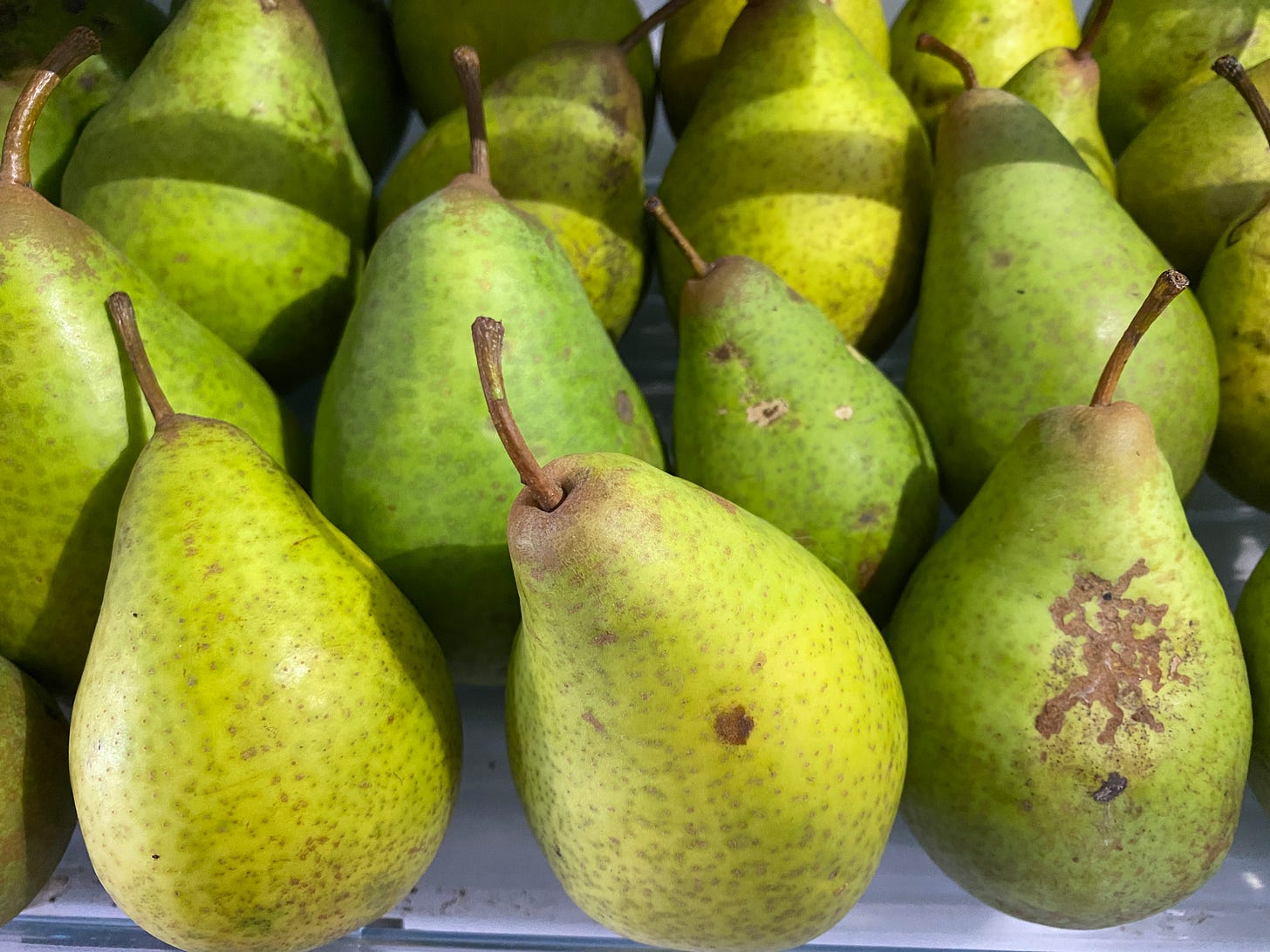

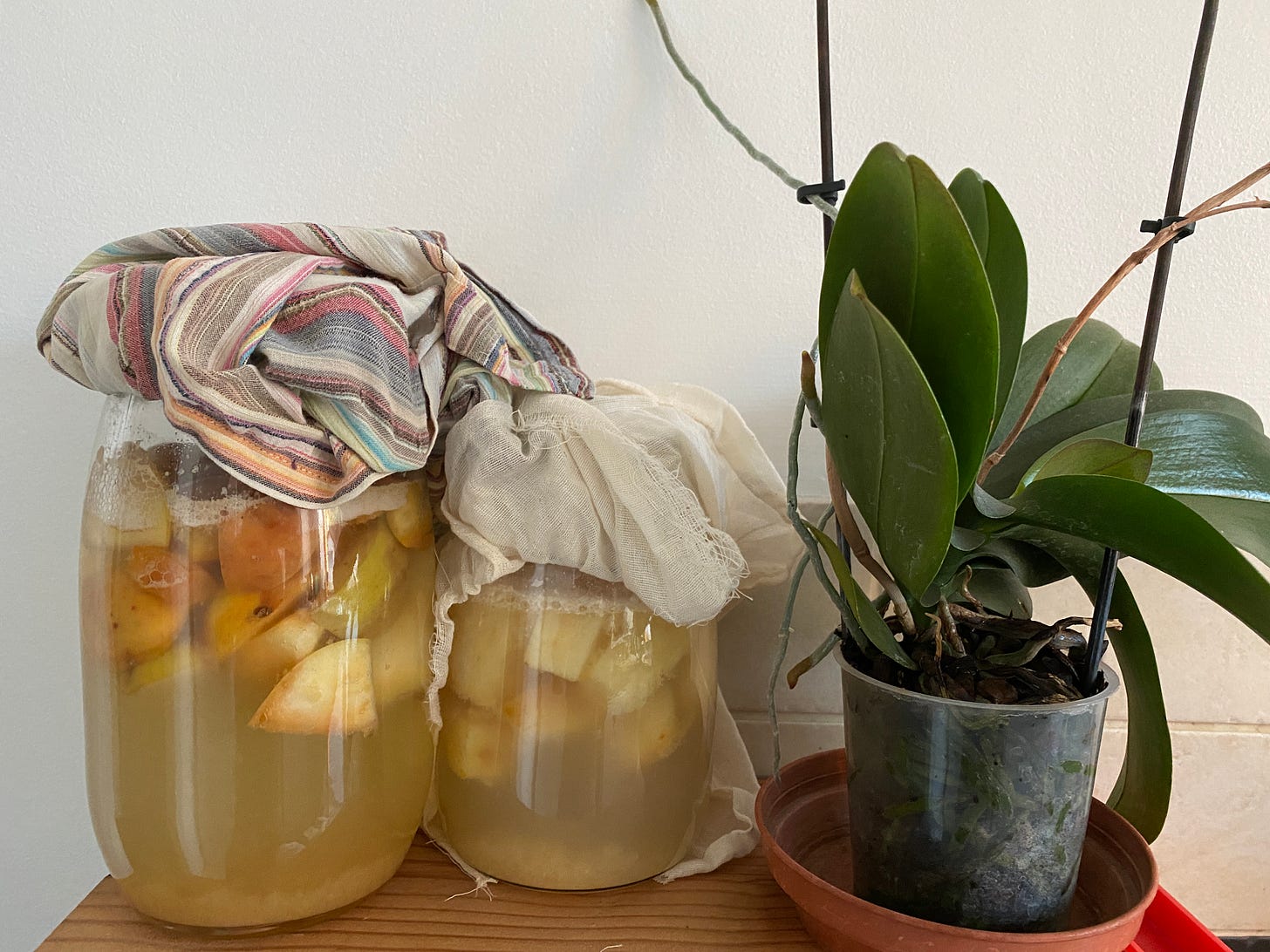
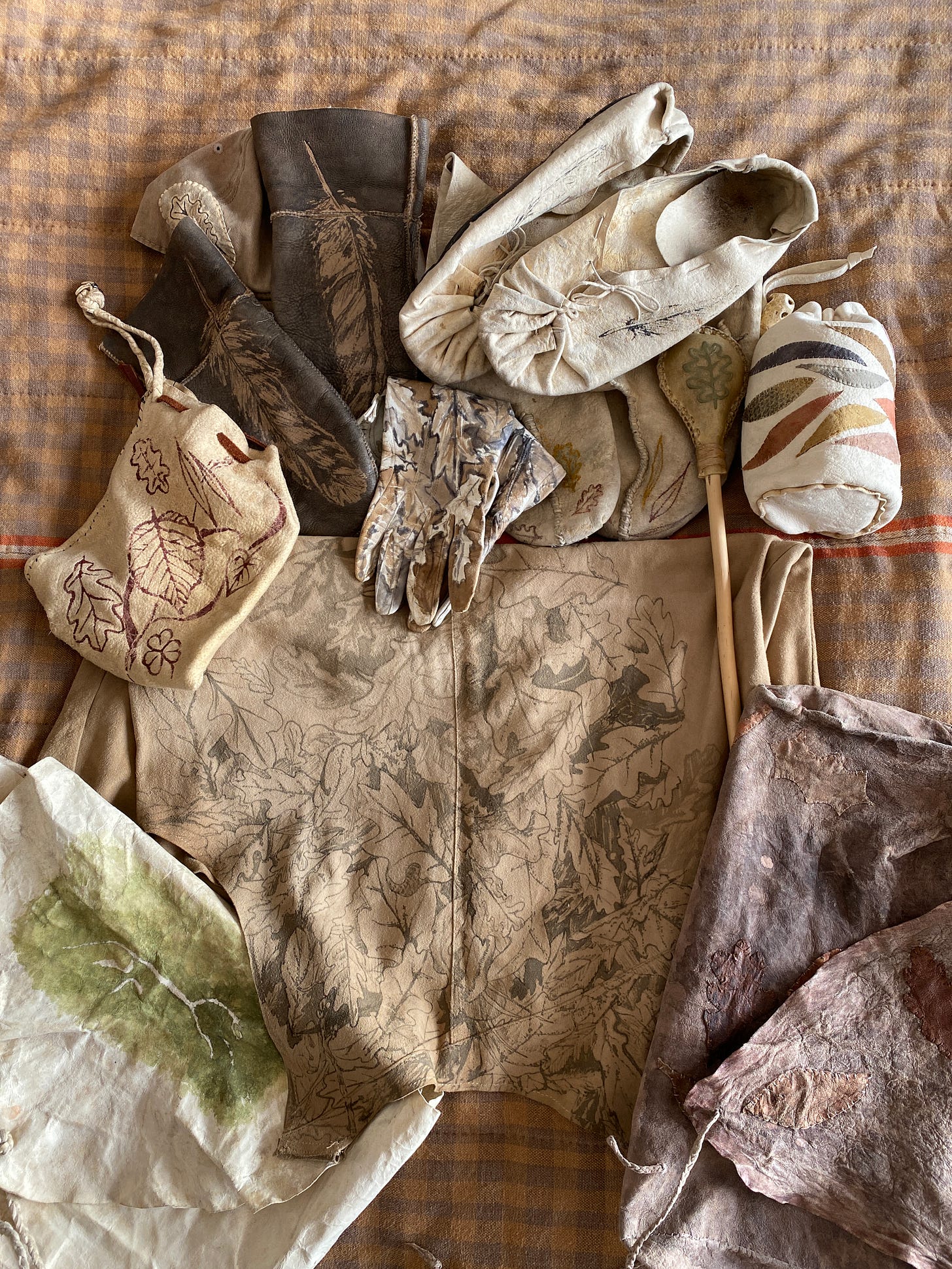
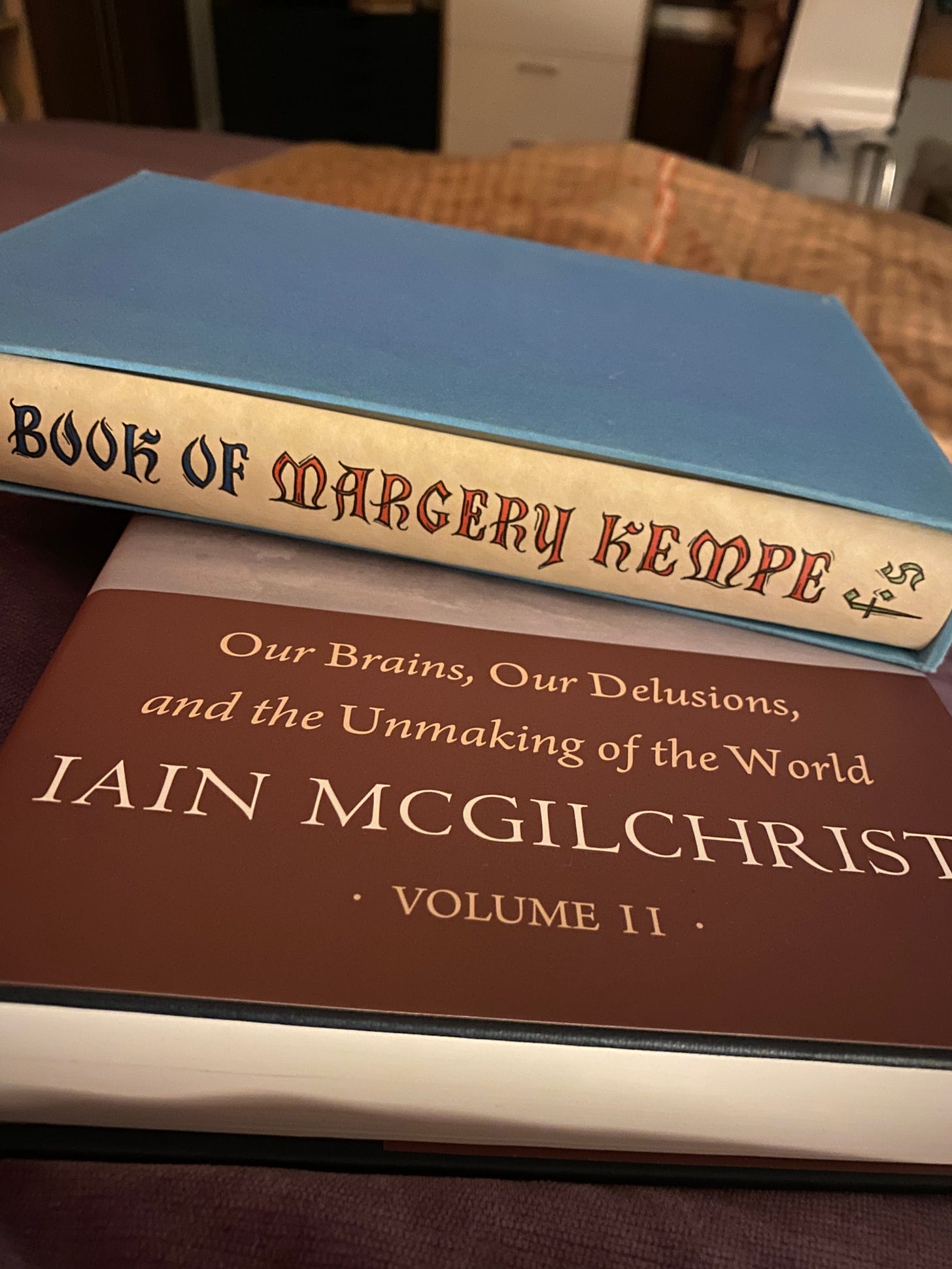
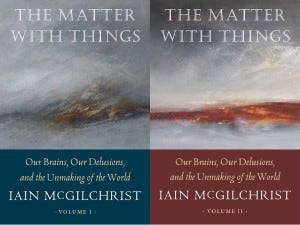
I like this wayfaring journey, sailing alongside Caro’s boat, thank you! The ocean has many storms ahead and around us.
Fascinatingly my gut feeling and the rebel warrior in my inner world is shouting ‘don’t forget to pack sharp knives for ripping apart the nets and cutting loose!’ The nets that ensnare and trap us and our fellow travellers are just as important to prepare to deal with.
I’ve noticed though, that the world would rather I just sit quietly, make do and mend. I can definitely vanish into that. I enjoy it, but for me there comes a tipping point when the inner warrior breaks out for a shout and an ambush and a clash of metaphorical swords (though honed with practical taijijian skills). I did many years in protests, actions and then in Politics, in a way that had been unthinkable until I found that I could get things done ‘under-cover’ of a flag of convenience!
It always seems shocking to people when fabric is torn and seams are ripped apart. But it is also the way of the universe. The ripping and rending and ‘needle in cotton’ seem just as important to life and to healing and change, as the tending and mending and weaving!
Mending is one of my favourite things. I love hand-sewing. Simplicity of the needle as a tool- what a Stone Age person wouldn't give for such a treasure!